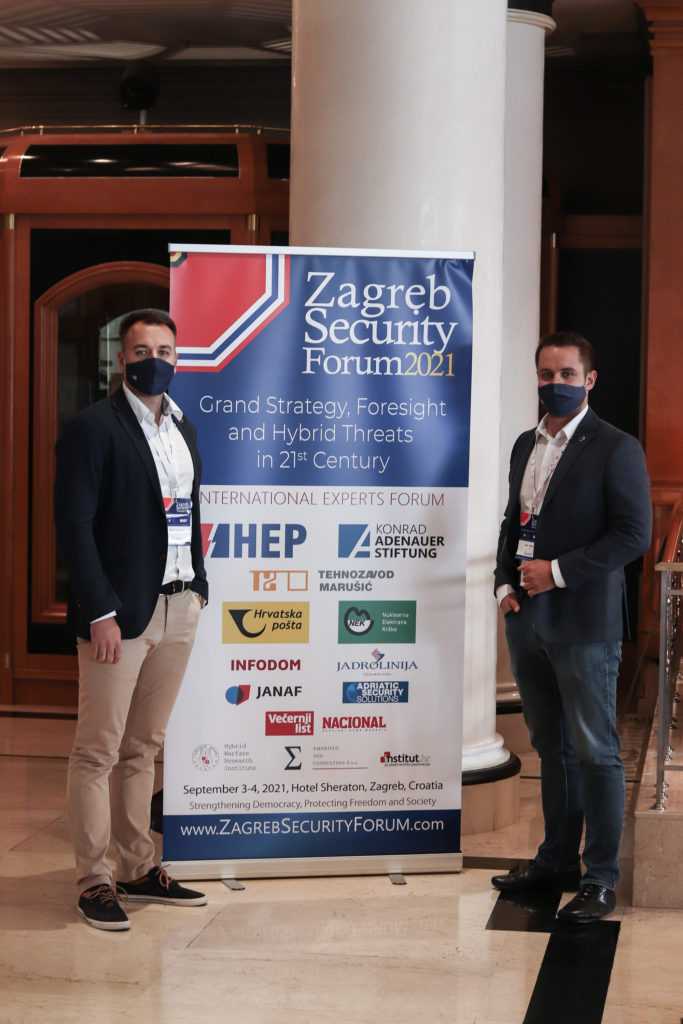
I ove godine smo nastavili sa praćenjem jedne od najvećih konferencija sigurnosti koje se organiziraju u Hrvatskoj, ovo je već 6. godina da se ZSF održava. Bila čast ponovo dobiti poziv od organizatora gosp. Gordan Akrap na prisustvovanje Zagreb Security Forum 2021 s temom Velike strategije, predviđanje i hibridne prijetnje 21. stoljeća – stvaranje društva i kritična infrastrukture otpornima. Konferencija je bila održana pod storgim epidemiološkim mjerama te pristup je bio isključivo putem Covid potvrde što je omogučilo slobodnije kretanje i komunikaciju unutar konferencije.
Teme su dotaknule trenutna aktualna stanja u području hibridnog ratovanja i kibernetičkih napada s kojima je svijet suočen. Također i sa stanjem u Afganistanu te Crnoj gori koji su nedavno eskalirali te na koji način je došlo do te situacije kao i korona koja je ostavila veliki utisak na cijelo globalno tržište i način života. Od ponavljajučiš tema su utjecaji Kine i Rusije na ostatak svijeta.
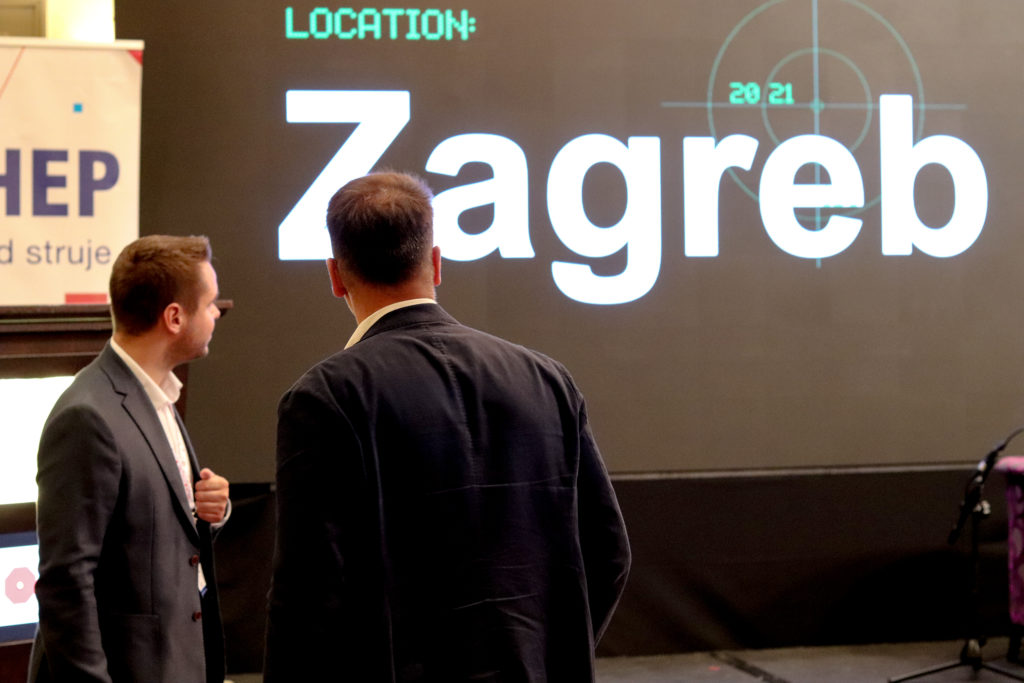
Zanimljivi je bio “Panel I” gdje je zaključak bio da količina podataka prikupnjena je neograničena a problematika sigurnosti je to što ti podaci zbog nedostatka trenutne tehnologije ali i ljudstva tj stručnjaka u tom području je nedostatna. Organizacija koja se bavi sigurnošću nije u mogućnosti sve obraditi te utjecati na to tako da je vidljiva potreba uključivanje organizacija od državnih , privatnih ali i neprofitnih kroz koje bi se zajednički interes sigurnosti i otpornosti društva mogao podići na višu razinu.
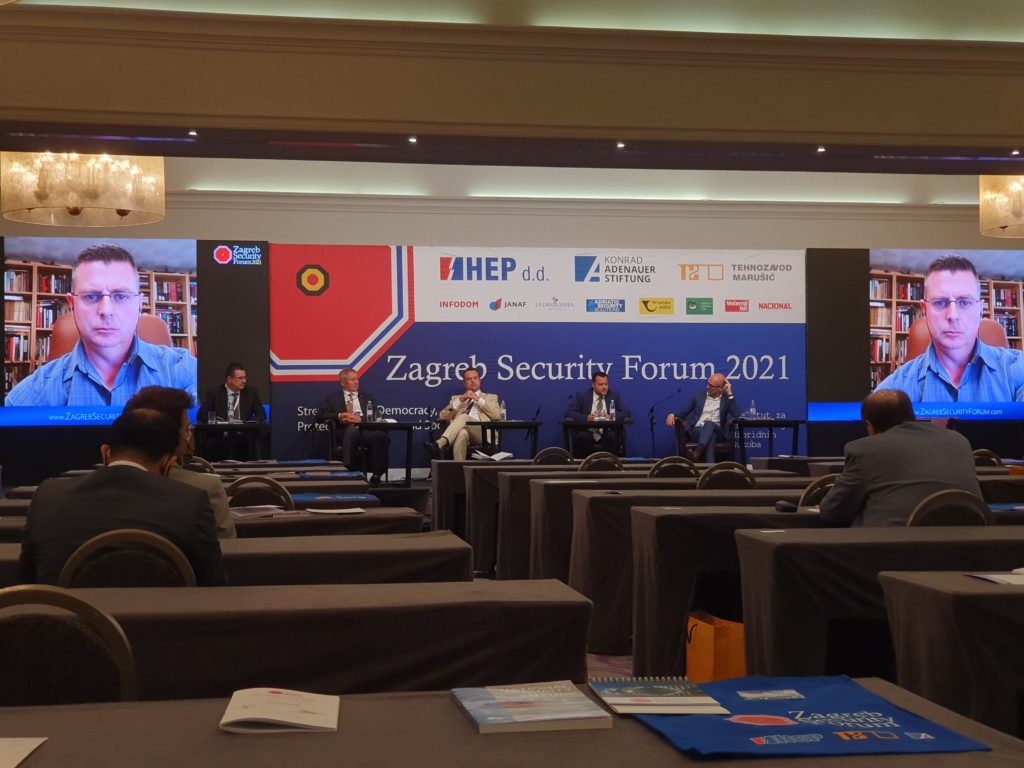
Teme i govornici ovogodišnje konferencije su:
Panel I
Strategic Foresight and Hybrid Threats
Lieutenant General Dr. Florian Coldea, “Mihai Viteazul” National Intelligence Academy, Romania: Intelligence Challenges in Countering Hybrid Threats
Prof.Dr. Shlomo Shpiro, Bar Ilan University, Ramat Gan, Israel: Foresight, Technology, and Hybrid Crisi Management – Lessons Learned from Corona and Afghanistan (online)
Prof.Dr.Gilliam de Valk, University of Leiden: Hybrid warfare and the Grey Zone: to deal with the Shaping of the environment through the concept of Augmented Intelligence
Dr. Vira Ratsiborynska, Free University Brussels (VUB), Belgium: Role of Foresight in Grand Strategy Planning, Development and Training
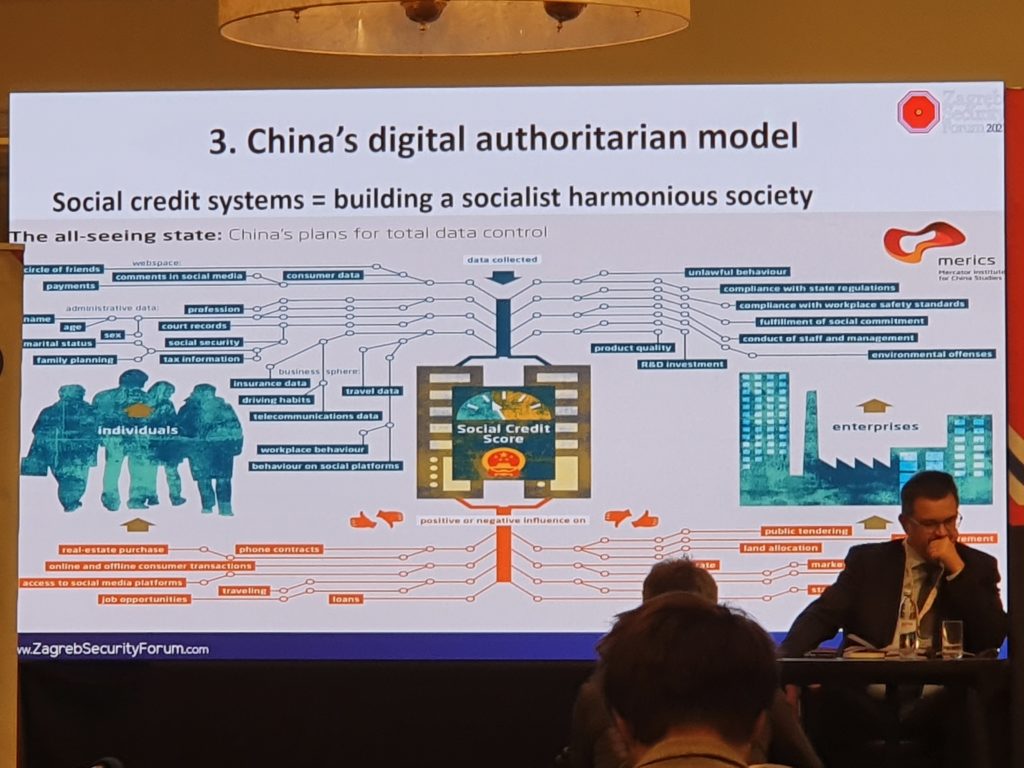
Panel II
Strategic Challenges and Hybrid Threats to Freedom and Society
Expert commentator/Challenger: Dr. Dorthe Bach Nyemann, Royal Danish Defence College, Denmark (online)
Dr. Jose L. Diego, Ivan L. Martinez, Valencia Local Police: EU – Hybnet
Gen. (res.) Ephraim Lapid, PhD, The Europa Institute, Bar-Ilan University, Ramat – Gan, Israel: Lessons of the Israeli Defense Establishment in Coping with COVID-19 (online)
Prof.Dr. Aleksandra Gasztold, University of Warsaw; Dr. Przemysław Gasztold, War Studies University, Poland: Vulnerability, Risk Analysis and Resilience Management in Critical Infrastructures in Poland and Germany
Prof. Dr. Slavko Vidović, INFODOM group, Prof.Dr. Neven Vrček, Faculty of organisation and informatics, University of Zagreb, Hrvoje Sagrak, CEO INFODOM Zagreb, Croatia: Resilience and Agility in Smart Industry Infrastructure as a Strategic Protection Tool Against Emerging Security Challenges
Col. (ret.) Martti Kari, PhD, Faculty of Information Technology in the University of Jyväskylä: Strategic Culture as a Tool for Foreseeing Hybrid Threats: Russia as a Case Study
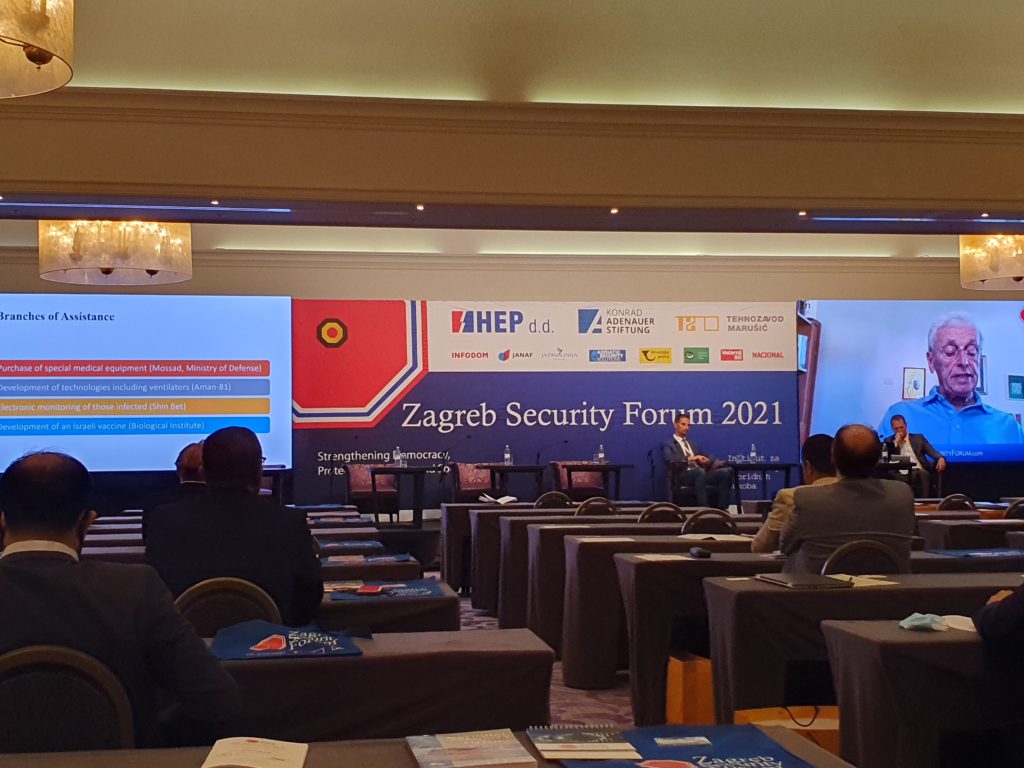
Panel III
NATO and Hybrid Threats
Chair: Assist.Prof. Gordan Akrap, Hybrid Warfare Research Institute, Zagreb
Expert commentator: Neil Chuka, Strategic Analyst/Defence Research and Development Canada Centre for Operational Research and Analysis, Department of National Defence, Canada (online)
Prof. Dr. Yantsislav Yanakiev, Bulgarian Defence Institute “Prof. Tsvetan Lazarov”: Strengthening Societal Resilience of the Allies on the Eastern Flank of NATO as a Means to Protect from Hybrid Threats (online)
Dr. Gintaras Labutis, Military Academy of Lithuania: The Analysis of Foresight Techniques at Lithuanian Armed Forces Long-Term Planning
Dr. Laris Gaiser: Chinese hybrid warfare approach and the logic of strategy
Dr. Andrew N. Liaropoulos, Assistant Professor, University of Piraeus, RIEAS, Greece: Digital authoritarianism ‘Made in China’: A techno-dystopian future
Dr. Paul Charon, Director for Intelligence, Strategic Foresight and Hybrid Threats at the Institute for Strategic Research: Operation “Infektion 2.0”, a deepening of the russianisation of Chinese disinformation campaigns
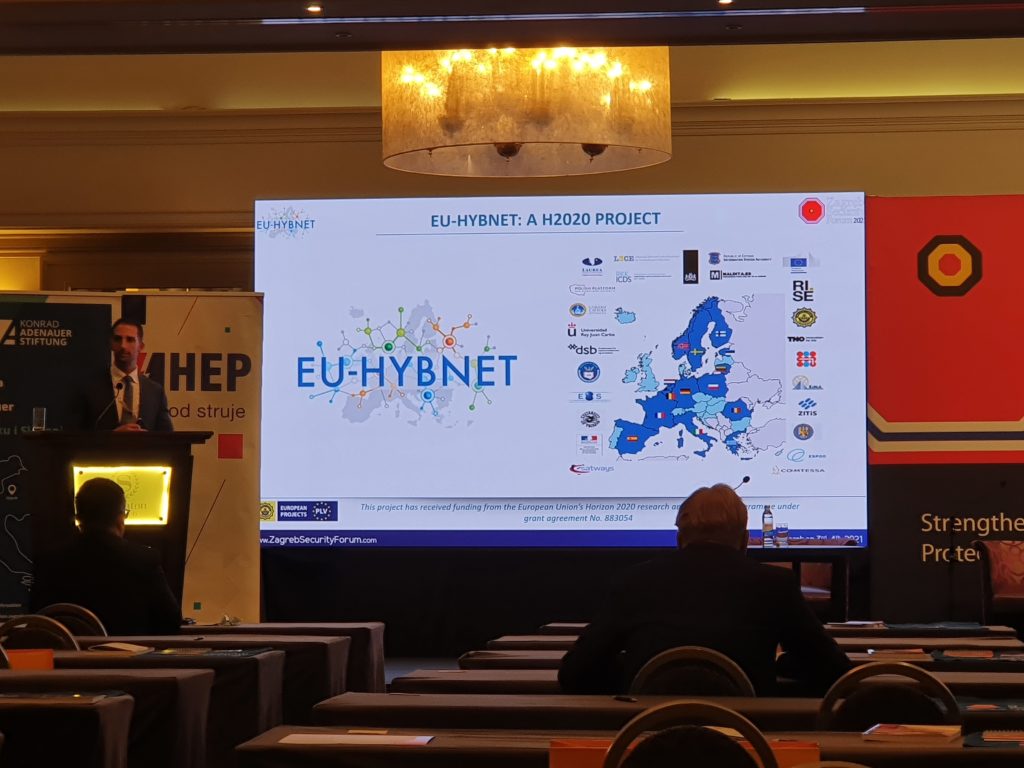
Panel IV
Hybrid Threats and Election Influence Operations – Lessons learned?
Session Under Chatham House Rules
Chair: Assist.Prof. Gordan Akrap, Prof.Dr. Shlomo Shpiro
Dr. Jerko Livaja, Ministry of the Internal Affairs of the Herzegovina-Neretva Canton: Decentralized Security Systems in Hybrid War Conditions with an Emphasis on the Security System in Bosnia and Herzegovina (online)
Ljubomir Filipović, Analyst, Montenegro: Analysis of the foreign malign influence in the Montenegrin election campaign, including the church protests 2019-2020
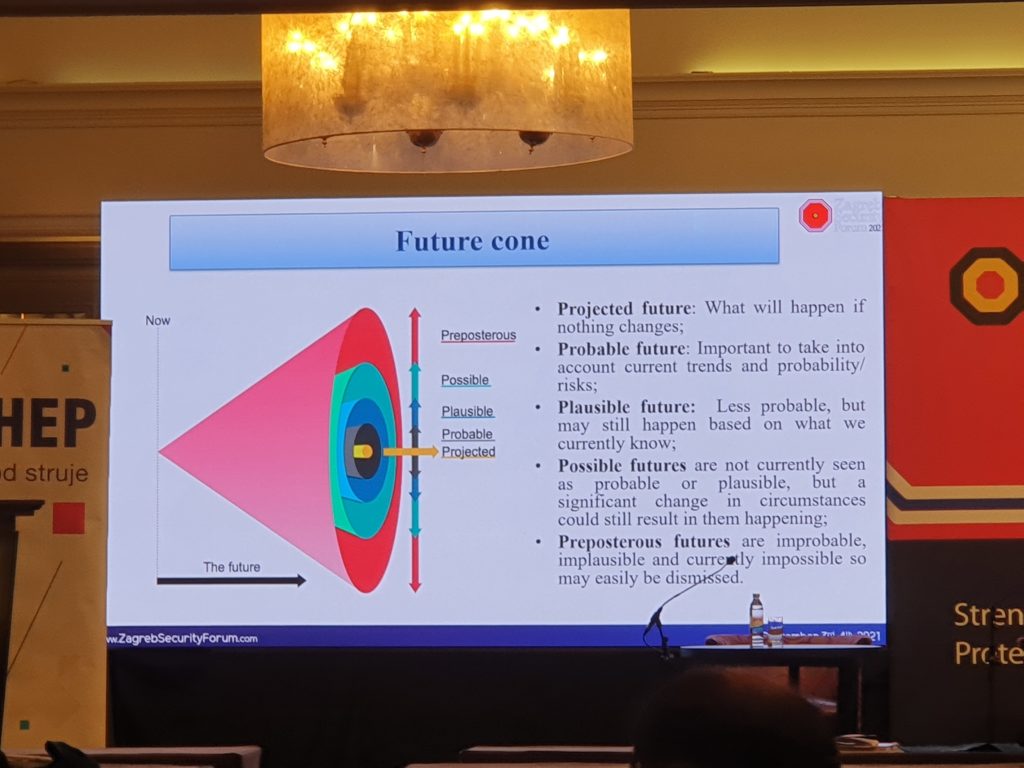
Panel VI
Young Researchers and Hybrid Threats Resiliency
Rebecca R. Farulli, German Marshall Fund of the United States: Strategic Foresight and Hybrid Threats
Eleni Kapsokoli, University of Piraeus: Western Balkan Jihadism: The Cyber Terror in the EU’s Neighborhood
Michael Wyss, Department of Humanities, Social and Political Sciences at ETH Zurich: The Evolution of Proxy Warfare in the Middle East
Tarik Solmaz: Understanding the Essence of Contemporary Revisionism: Going Beyond Hybrid Warfare
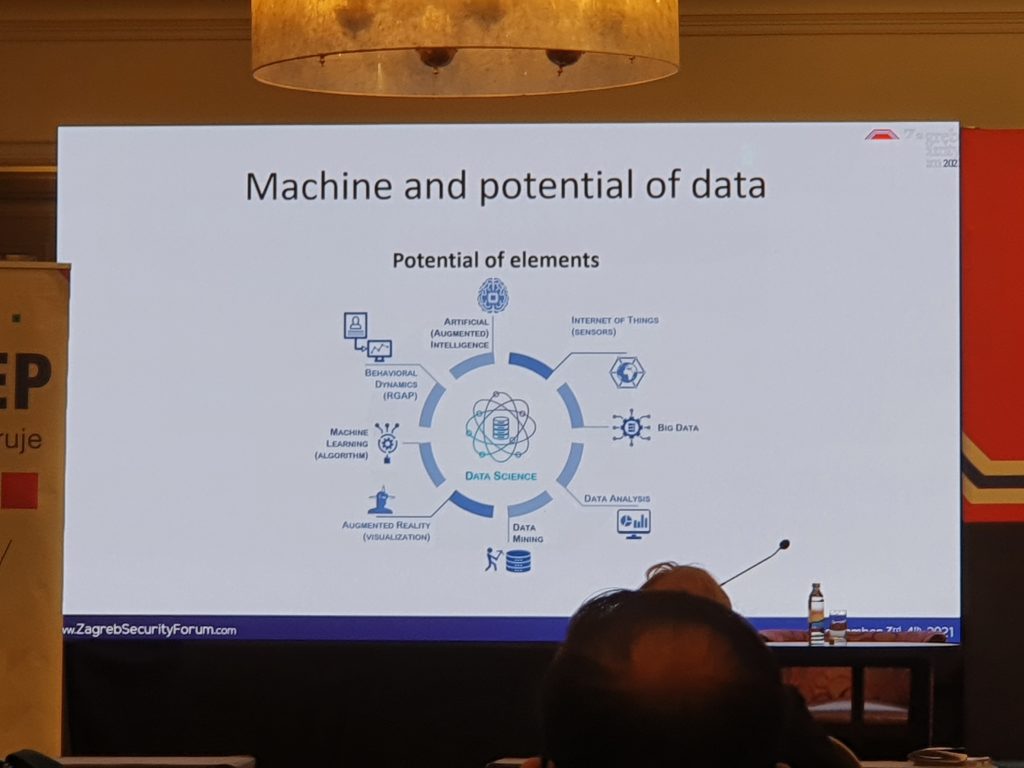
Forum Conclusions
Future Challenges, Joint Responses
Co-chairs: Assist.Prof. Gordan Akrap, Prof. Dr. Shlomo Shpiro
The aim of this session is to integrate the lessons learned from the individual presentations of the previous two days, both in terms of threat analysis and of networked responses. Furthermore, this session will facilitate a wider discussion on the needs for joint capacity building, intensive inter-operability, and mutual multi-level crisis assistance.
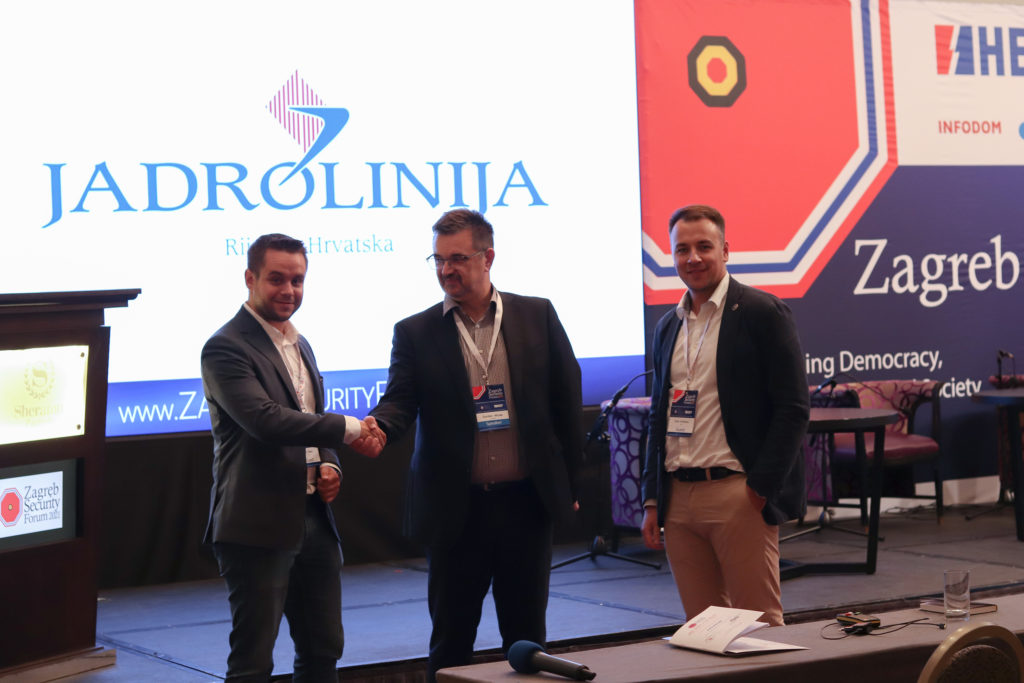
Ova konferencija je ujedno i najava konferencije koja će se u organizaciji Alumni TVZ-a održati u 10. mjesecu pod nazivom Cyber Security Month o kojoj ćemo uskoro više pisati.









